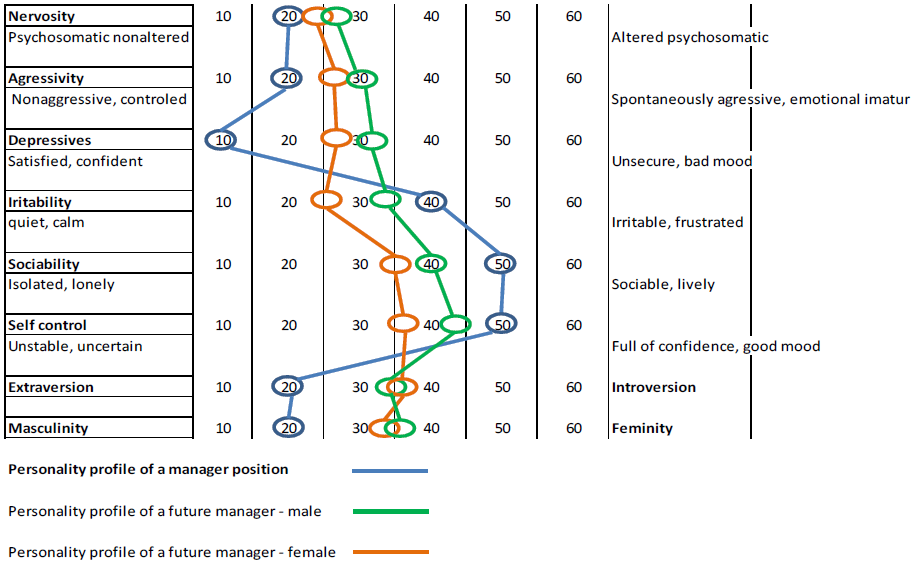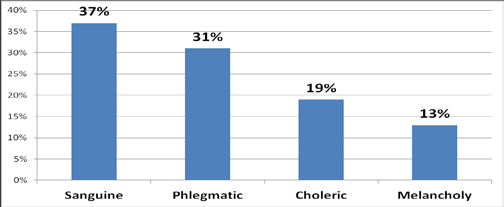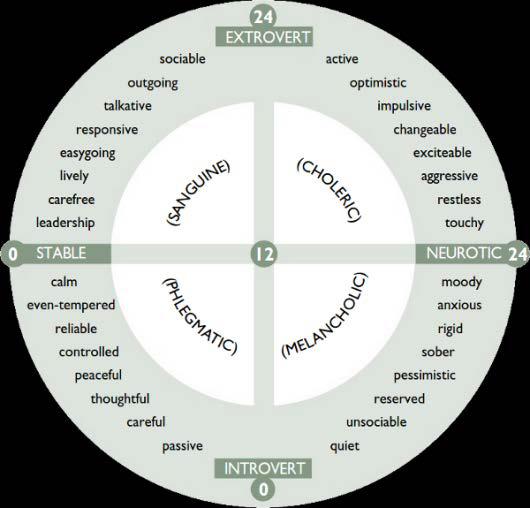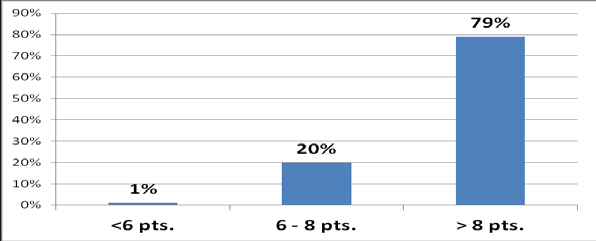Abstract
Being a sport manager requires certain personality traits of those who are interested in doing this job, and experts in this field explained why. Knowing these characteristics, they can support those who are training the managers in designing and implementing a vocational training program capable of supporting both the development of specific skills, and their personal development. This paper highlights the personality profile of the future sport managers and analyzes the activities dedicated to support their professional training. The research evaluated forty-seven (47) students from the sport management master program developed by the University of Physical Education and Sport from Bucharest. They had to complete a personality test (Siewert, 2007), a leadership test (
Keywords: Sport managementpersonality profilepersonal developmentcompetencescareer
Introduction
The question concerning the existence of some desirable traits for a good manager constantly
aroused the interest of researchers. The psychological profile includes a set of features and
characteristics of aptitudes, temperament and character that have a direct relationship with certain
occupations. Many researchers investigate the manager personality profile in economy, industry,
education, but also in sport.
A number of research studies on the topic of successful tourism managers revealed that they possess
a number of personality traits and behaviors that determines the efficiency of their activity (Worsfold,
1989; Ghei & Nebel, 1994). Moreover, it was found that a person's androgynous features (those that
comprise positive behavior, male and female) would favor the manifestation of behaviors that increase
success in hospitality management (Ghei & Nebel, 1994). Research of this hypothesis led to the
conclusion that successful hotel managers are androgynous to a greater extent than the average
population. Within this category of successful managers, those working in 4-star hotels displayed these
traits more than those working in 3-star hotels. In terms of male and female personality characteristics,
significant similarities appeared in the profiles of the female managers and of the male managers.
On the other hand, in 2009, J. Kahnweller argued that although about 40% of the organization
leaders are characterized by introversion, the most effective ones are ambiverts, who are able to
oscillate between introversion and extraversion, being more flexible and more adaptable to different
situations pertaining to the managerial activity. Other leadership qualities highlighted by the quoted
author are the ability to collaborate, to be consistent, competent, creative, courageous, conscientious,
able to empathize with others, and last but not least, they have integrity.
Being a sport manager requires from people interested in practicing this job certain personality
traits, the necessity of which was argued by some experts in the field, since the 80s (Ghei & Nebel,
1994; Wordsfold, 1989) However, the studies are not numerous. In Romania, in a 2011 study,
researchers showed that sport managers are characterized by a high degree of sociability, anxiety,
tendency to avoid monotony, impulsivity, inhibition of aggressiveness, and guilt. Muscle tension,
indirect aggression, verbal aggression, and irritability occur at a low level compared with other sport
managers (from Spain, in this study). (Macra-Osorhean et. al., 2011)
Although the interest in this research topic was not high, we consider that knowing these
characteristics can support those who are training the managers in designing and implementing a
vocational training program capable of supporting both the development of specific skills, and their
personality. This approach can contribute to the training of specialists in sports management,
complementing different curricular design patterns: the curricular design model Alumni Oriented
Approach (Ulrich & Parkhouse, 1982), in which the design of the curriculum takes into account the
feedback obtained from the program graduates, after they were confronted with the labor market
requirements; the business oriented approach model, in which the emphasis falls on the ability of the
graduates to lead organizations from the perspectives of the relations with other social and economic
areas. (Hardy, 2012)
Aim
Based on the results of previous studies, this paper highlights the personality profile of the future
sport managers and analyses the activities dedicated to support their professional training. We
supposed that students from the management master program demonstrate a specific range of traits
which recommend them as successful managers.
Research Design
3.1.Subjects and methods
In this research we evaluated forty-seven (47) students from the sport management master program
developed by the Bucharest University of Physical Education and Sport. The students’ average age was
25, 2.
The research methods used were theoretical documentation and psychological tests. Documentation
has been applied to study the curriculum and the subject syllabus taken by students during the 2 years
of the master's program. As variable we analyzed the social and emotional skills, in connection with
the personal development of the future managers.
Regarding the study of personality characteristics of students, they had to complete a personality test
(Siewert, 2007, pp. 73-98), a leadership test (Niehouse, 1983) and a temperament test (EPI). The
information was centralized and analysed by reference to the information in the specialty literature.
H.Siewert Personality Test is a test adapted from the Minnesota Multiphasic Personality Inventory,
MMPI (Siewert, 2007). It is based on principles similar to it and assesses personality traits on the
following dimensions: nervousness, aggressiveness, depression, irritability, sociability, self-control,
extraversion / introversion, masculinity / femininity. The evaluation of each trait is done by scores on a
scale from 0 to 60, following the application of 90 questions. Given that the literature shows a model of
a personality profile of a person who occupies a leading position, the results achieved from the
application of the test to the target group have been compared to this model too.
The leadership test (Niehouse, 1983) highlights the leadership potential of those who are preparing
to become managers. The test consists of 11 items and counts the responses by granting one point for
certain options expressed by respondents. The assessment of the leadership potential is made on a scale
from 1 to 11 points.
The temperament test Eysenck Personality Inventory (EPI) measures two dimensions of the
personality, namely Extraversion-Introversion and Neuroticism-Stability. It consists of 57 items, which
are answered by Yes or No. If the scores obtained on an extraversion - introversion scale tends to reach
24 it is considered that the specific features of extraversion predominate, while the same value on the
neuroticism - stability scale indicates the predominance of anxiety, worry, guilt, jealousy, and isolation
tendency. (Figure
The results obtained were processed statistically by calculating the averages for the population
studied, broken by sex. Also, for the analysis of the differences between the average values obtained in
this study and those of the theoretical model of the manager profile, we used a non-parametric test
(ANOVA), within SPSS 17.0.
Results
The analysis of the curriculum of the master program mentioned found that it includes 23 subjects,
with the total time allocated for teaching and individual study amounting to 1498 hours. In every
subject, the pursued skills are cognitive (related to the knowledge acquired by students) and work-
related (covering a range of specific operations for the management activity, especially those related to
the exercise of managerial functions). None of the subjects appeared to pursue distinctly formulated
skills aimed at developing the personal development of the students, in terms of personality traits.
After applying the personality test, profiles were represented both for females and for males (Figure
1). The profiles were compared with those illustrated by the model proposed by Siewert for the person
who holds the position of manager (generally, not associated with a particular field). By comparing the
profiles, the students’ values exceed the theoretical model values in terms of nervousness,
aggressiveness and depression, elements that may be associated with their maturity phase. They also
have a higher tendency of isolation and lower self-control than recommended. However, they are less
irritable, the calm and tranquility being predominant features.
Regarding their temperamental traits, students are ambiverts, their scores exceeding the
recommended values for managers. At the same time, there is a tendency for expressions of
androgynous traits, which - according to the results of research in the field - could constitute a
prerequisite for professional success.

After applying the ANOVA test to compare the personality profiles of the students and the
theoretical one, it appears that the differences between them are not significant at p = 0.05, which
allows us to state that the differences do not constitute disadvantages for their potential as managers.
(Table 1)

In terms of the masculinity - femininity personality dimension of the students in the target group, we
believe there are some special elements. As is known, the scale refers to a cluster of socially acceptable
attributes that differentiate the two sexes and characterize their personality. It should be noted that
although the theoretical model of the manager is oriented towards male behaviour, managerial
psychology studies have revealed that successful managers are androgynous, with specific
characteristics of both sexes. We find these premises also in our target group, as students are showing
to a greater extent androgynous trends than the theoretical model proposed to a manager in general.
(Figure
The application of the Eysenck test revealed that students possess characteristic features of the
sanguine and phlegmatic types, which again illustrates that the majority (68%) have resources to
perform successfully the occupation they have chosen.

Figure
traits that literature recommends, in general, for the persons occupying management positions.

Information from previous test results is supported by those obtained by applying the test for
leadership potential. As reflected in Graph
sport managers, we find this is well represented. 79% of students show attributes that can help them
become leaders in the organizations in which they will work.

Discussion and Conclusions
The results of this research revealed that the sport manager has a number of personality traits that
generate distinctiveness compared to the general pattern provided by the literature for a manager's
personality. As there have been no significant statistical differences between our outcomes and the
reference ones, we believe that most students have the features necessary for a successful career in
sport management.
Comparing the findings of these studies to the model of the sport manger's personality [5] allows us
to say that there are some similarities. The level of sociability, aggressiveness, insecurity, irritability,
all tend to exceed the theoretical model of the manager. Having identified these characteristics by
means of other tests we are not able to make a direct comparison of scores. In this regard, future studies
can make important contributions in identifying the significance of the difference between the scores
obtained by students in master's programs, sport managers in sport activities, and managers in general.
Among the population studied, the sanguine temperament is predominant, followed closely by the
phlegmatic temperament. These temperamental types, balanced, strong, associated to the identified
characteristics of ambiversion, are important resources for a successful career as sport manager.
We should emphasize that although there are no significant differences in the dimensions of
extraversion - introversion and masculinity - femininity, the values obtained by students are closer to
those described in the literature as providing professional success, namely ambiversion and androgyny.
We believe that these elements are prerequisites for a successful career.
Although students show considerable personal resources for successful managerial activities,
however, they must continue their efforts to develop those traits that can ensure greater efficiency in
their future occupation. As the master's program, by its content, is intended especially for cognitive and
professional skills (competency-based approaches) we consider useful to introduce subjects aimed at
the personal development of the future managers. Among these we can include courses of leadership,
communication, public speaking, and they could complement the master's program design in terms of
the sports manager personality profile approach. This is becoming a necessity for the continuous
training of the future managers.
Some limitations of the study are linked to the relatively small number of subjects tested, and the
lack of interviews / letters of motivation for the career choice, which could have been correlated with
the results.
This study allowed us to identify the need for extending research on the subject, so that it can create
personality profiles may be used for career counselling professionals. At the same time, information
may form the basis of personal development programs that can help improve sports skills of future
managers. It also requires the achievement of such profiles of managers already working in sports,
given the many variables: age, experience, results. This information should be milestones for
professional development of young managers.
This study allowed us to identify the need for extending the research on this matter, so as to develop
personality profiles which may be used for career counseling by professionals. At the same time, the
information may form the basis of personal development programs that can help improve the skills of
the future sport managers. It is also necessary to profile the managers who are already working in
sports, in terms of several variables: age, experience, and results. This set of information should be a
milestone for the professional development of the young managers.
References
- Worsfold, P. (1989). A personality profile of the hotel manager. International Journal of Hospitality Management, 8(1), 51-62. (Retrieved from http://www.sciencedirect.com/science/ journal / 02784319/8/1, at 19 February 2016) Ghei, A., Nebel, E.C. (1994). The successful manager and psychological androgyny: a conceptual and empirical investigation of hotel executives. International Journal of Hospitality Management, 13(3), September, 247-264 (Retrieved from http://www.sciencedirect.com/ science/article/pii/0278431994900248, at 19 February 2016) Kehnweller, J. (2009). Why Introverts Can Make The Best Leaders (retrieved from (http://www.forbes.com/2009/11/30/introverts-good-leaders-leadership-managing-personality. html) Worsfold, P. (1989). A personality profile of the hotel manager. International Journal of Hopitality Management, 8(1), 51-62. (Retrieved from http://www.sciencedirect.com/science/ article/pii/0278431989900315)
- Macra-Osorhean, M., Lupu, I., Bogdan, T., Lazăr, L.C. (2011). Psychological Profil of Romanian Sports Manager in an Internation Comparative Perspective. Studia UBB Educatio Artis Gymn, LVI(4), 19 – 30.
- Ulrich, D., Parkhouse, B.L. (1982). An Alumni Oriented Approach to Sport Management Curriculum Design Using Performance Ratings and a Regression Model. Journal: Research Quarterly for Exercise and Sport, 53(1), March 1982, 64-72. (Retrieved from http://www.tandfonline.com/doi/abs/10.1080/ 02701367.1982.
- 10605227, at 20.12.2015) Hardy, S. (2012). Graduate curriculum in sport management: The need for a business orientation. Quest, 39(2), 207-216. (Retrieved from http://www.tandfonline.com/doi/abs/ 10.1080/00336297.1987.10483874, at 20.12.2015) Siewert, H.H. (2007). Teste de personalitate. București: Editura Gemma Press.
- Niehouse, O.L. (1983). How to measure your leadership potential. Supervisory management, 28(1), January, 2-7 (Retrieved from http://www.unboundmedicine.com/medline/citation/10259773/How_to_measure_your_leadership_potential _, at 10 September 2015) Eysenck’s Personality Inventory (EPI) (Retrieved from http://www.liaf-onlus.org/test/eysencks-personalityinventory-epi-extroversionintroversion/ at 10 September 2015)
Copyright information

This work is licensed under a Creative Commons Attribution-NonCommercial-NoDerivatives 4.0 International License.
About this article
Publication Date
04 October 2016
Article Doi
eBook ISBN
978-1-80296-014-3
Publisher
Future Academy
Volume
15
Print ISBN (optional)
-
Edition Number
1st Edition
Pages
1-1115
Subjects
Communication, communication studies, social interaction, moral purpose of education, social purpose of education
Cite this article as:
Stănescu, M., Vasile, L., & Stănescu, R. (2016). Study About the Psychological Profile of the Future Sport Managers. In A. Sandu, T. Ciulei, & A. Frunza (Eds.), Logos Universality Mentality Education Novelty, vol 15. European Proceedings of Social and Behavioural Sciences (pp. 935-942). Future Academy. https://doi.org/10.15405/epsbs.2016.09.116

